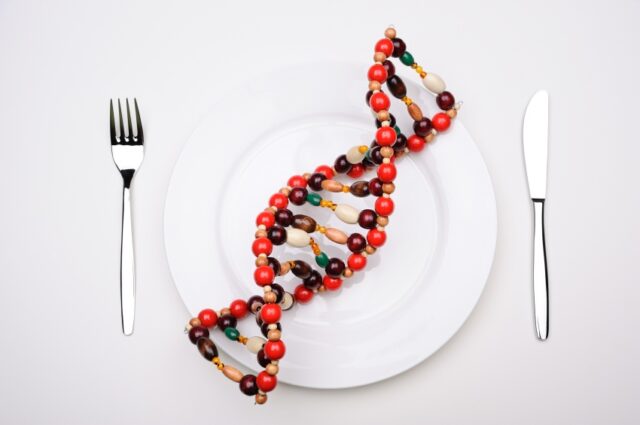A new study out of Washington State University has shown that human genetic mutations can be found in plant genes, which now means that scientists can transfer those mutations directly from plants into foods to manipulate them. Once the gene has been altered, the plant undergoes rapid development. The plant also seems to be able to accumulate the new genetic material.
Nutrigenomics is the study of how our genes affect our food and therefore our health and wellness, and the study of how foods affect our genes. It may sound like it is something new, but it has been around for a long time. A good example of a nutrigenomic study would be a study done by the Mayo Clinic in 2002. The results of this study and other studies have shown that certain foods affect our genes, whereas others don’t. This has led to many advances in understanding how nutrition affects our bodies and our genes.
If you’re a regular reader of this blog, you may have read about my work on the interrelation between diet and genetics. Some of the most popular posts on this topic have been featured in the media, most recently a recent post on the NPR Planet Money blog about my research on the interrelation between genetic variation in the MTHFR gene and the risk of developing a particular nutrient-related disease, called homocystinuria.
Nutrigenomics is the study of the interactions between genes and nutrition.
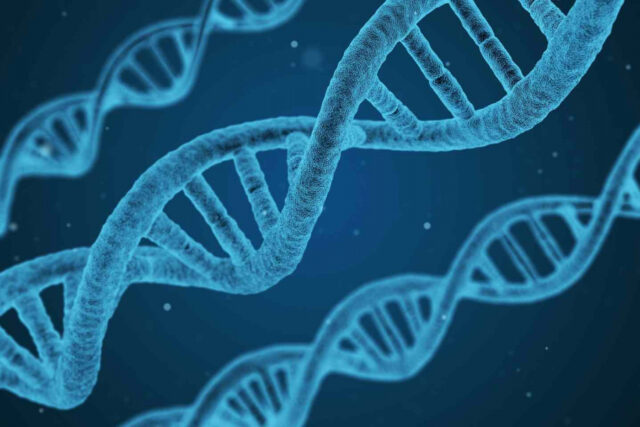
Until recently, I thought this was an amazing branch of research that will alter the future of nutrition, medicine, and other fields. However, all of this strange gene-nutrient stuff remained a mystery to me. It was more for futurists to speculate about than for doctors, dietitians, and other health professionals to utilize on a daily basis.
Dr. Ahmed El-Sohemy, one of the world’s top nutrigenomics experts, gave a small-group talk six months ago, and I was lucky enough to attend. I knew I was mistaken when I heard Dr. El-Sohemy speak. With the completion of the human genome project and the most recent nutritional research, it is obvious that nutrigenomics is no longer the way of the future in medicine. It has arrived today. And it’s something that cutting-edge health professionals use on a daily basis.
My synapses were blazing like a Fourth of July light display as I sat in the crowd. There was so much information flying about that my pen couldn’t keep up with it. I knew I needed to take a seat and pick Dr. El-brain. Sohemy’s Here’s what came out of our most recent discussion.
Berardi, John: Thank you for agreeing to conduct this interview, Dr. El-Sohemy. It’s much appreciated, and I’m certain that everyone who reads it will be enthralled by your effort.
You provided some fascinating findings a few months ago on how genetic information may affect our knowledge of nutrition and nutrient science. In other words, you discussed how our genes may influence our reactions to food, supplements, and other factors.
Can you provide a short overview of the subject of nutrigenomics for people who are unfamiliar with it?
Dr. Ahmed El-Sohemy (Ahmed El-Sohemy): Nutrigenomics (also known as nutritional genomics) is the study of how the foods we consume interact with our genes to influence our health. “How much of each nutrient should a specific individual consume?” is a common question. “What are the biological effects of a particular supplement?” and “What are the biological impacts of a specific supplement?”
In order to examine such issues, we use one of two methods.
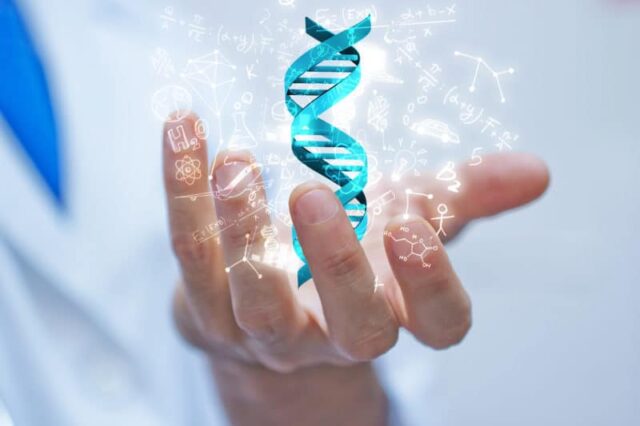
First, we investigate how common variants in the human genome underlie individual variability in food response. This field of study, for example, explains why some individuals may consume a high-fat diet and have no problems with their cholesterol levels, while others have the exact opposite reaction.
For some, it’s the breakfast of champions, but for others, it’s the heart attack special.
This field of study, known as nutrigenetics, allows us to understand why some people react differently to the same foods than others.
The second method used by nutrigenomics researchers is to look into how nutrients and bioactive components in food affect the expression of certain genes, which affect key metabolic and physiologic processes in the body.
For example, researchers have discovered molecules in broccoli that activate a gene that aids the body’s detoxification of some of the toxic substances we’re exposed to.
Some people want to detox, while others want to eat crunchy vegetables.
This area of study, of course, aids in our understanding of the processes through which food, and particular chemicals within food, may affect human health.
Berardi: This is fascinating information, particularly because it has long been said that “you have to discover what works for you” when it comes to diet. This often entails a great deal of trial and error.
In summary, nutrigenomics is assisting in both explaining why you must discover what works for you and determining what will work for your genetic type.
I’m interested before I go further into your study. How did you get interested in the area of nutrigenomics? What is your history?
Dr. El-Sohemy: I’m Dr. El-Sohemy, and I’m I got interested in this area around ten years ago, long before the name “nutrigenomics” was created. I was working on my PhD in nutritional sciences at the time, and I was using rodent models to study the effects of cholesterol on cancer.
One of my tests had very unexpected outcomes. They were, in fact, diametrically opposed to those reported by other researchers. However, it turns out that the rat strain I utilized metabolizes cholesterol very differently from other strains used in prior studies.
The study’s design was almost similar to earlier ones, with the exception of the animals’ genetic background. I discovered how important genetics is while researching nutrition, and it dawned to me that human genetic variations might possibly explain why some individuals react differently than others.
As a result, I chose to take some genetics classes and pursue a molecular biology degree. I went to Harvard for a scholarship to continue this kind of study in people after completing my PhD at the University of Toronto.
Berardi: As a result, you’re a true pioneer in the sector. And it’s fantastic that we have people with significant bio and genetics backgrounds like you looking at these critical nutritional issues.
How do our genes influence our reactions to the foods we consume and the medications we take?
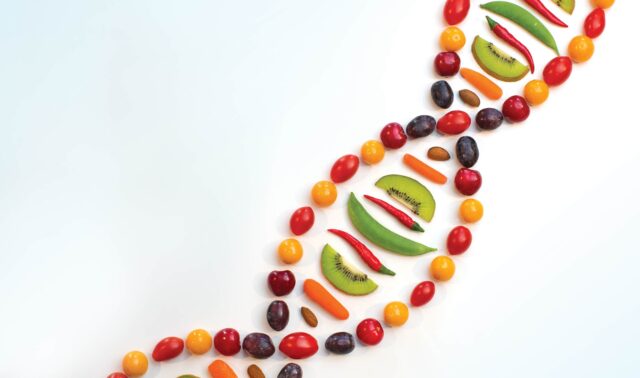
Dr. El-Sohemy: I’m Dr. El-Sohemy, and I’m To begin with, we’ve known for a long time that different people react to various medicines. Indeed, most of the ground-breaking work in pharmacogenetics was done at the University of Toronto decades ago.
However, Hippocrates, the founder of modern medicine, said in 480 BC that “Positive health requires a knowledge of man’s basic constitution and of the capabilities of different meals, both those inherent to them and those arising from human skill.”
The term “constitution” refers to our genetic profile, whereas “foods deriving from human skill” refers to the dietary supplements and functional foods that are currently accessible.
When it comes to the nutrients we consume via our meals or the supplements we take, our genes may lead us to react differently than our neighbors, just as they do with medications.
Consider the following scenario: Almost everything we eat may be affected by the rate of absorption, distribution, metabolism, or excretion of certain genes. And our responses may be very variable as a consequence of these variations.
The gene I discussed before, which is triggered by chemicals present in broccoli, is really absent in about 20% of the population. As a result, some individuals will not benefit from broccoli’s detoxifying qualities, but they will most likely gain from its antioxidant benefits.
Understanding the causes of this diversity will undoubtedly aid us in a number of ways. For starters, it may explain some of the discrepancies among prior research linking foods, supplements, and other bioactives to a variety of health outcomes. Second, depending on our genetic profile, it may assist us understand how to eat or which supplements to take.
Berardi: Indeed, I’ve heard that, due to genetic variations, two people’s physiological responses to the same medication or supplement may vary by 70 times at the same dosage. While this may seem surprising, it makes sense.
Some individuals, for example, react to creatine supplementation with significant performance gains and increases in lean mass, while others do not. As a result, one or more of the processes — absorption, distribution, metabolism, or excretion — are likely to be influenced by their genotypes, resulting in a broad range of responses.
I know you’re looking into it with regard to caffeine use. What are the results of your research in the lab?
Dr. El-Sohemy: Last year, we published a research in the Journal of the American Medical Association that showed that caffeinated coffee consumption reduced the risk of heart attacks in certain people. However, the same amount of caffeinated coffee raised the risk of heart attacks in other people.
Berardi: Let me make an educated estimate. It had something to do with genes.
Dr. El-Sohemy: I’m Dr. El-Sohemy, and I’m That’s correct. Individuals with a ‘slow’ form of the gene CYP1A2 (a gene that breaks down caffeine in the liver) have a higher risk of heart attack when they increase their caffeine intake.
Those with the ‘fast’ form of CYP1A2, on the other hand, have a reduced risk of heart attacks when they consume moderate amounts of caffeinated coffee (1-3 cups per day).
Berardi: How do individuals reconcile this contradiction?
Dr. El-Sohemy: These results indicate that caffeinated coffee promotes heart disease only in those who have a limited ability to break it down.
Those with the ‘fast’ form of the gene may benefit because they can quickly break down caffeine, removing the caffeine while retaining the “healthy” antioxidants in the coffee. It is these antioxidants, not caffeine, that may provide cardiac protection.
Finally, in terms of heart disease, caffeine is probably not healthy for anybody. However, if you can get rid of it quickly because you’re a “rapid” metabolizer of caffeine, the other chemicals in coffee or tea, both of which are excellent sources of antioxidants, may be beneficial to you.
By the way, just because you can metabolize coffee quickly doesn’t mean you can metabolize any other dietary component quickly. Each gene codes for enzymes that are unique to the substances they metabolize.
Berardi: I don’t know my CYP1A2 genotype, which is unfortunate since I like an occasional cup of espresso! How can I tell whether every time I make a pot of coffee, I’m playing Russian roulette with my health?
Dr. El-Sohemy: I’m Dr. El-Sohemy, and I’m Some individuals believe they know they’re’slow’ caffeine metabolizers since a cup of coffee in the afternoon keeps them up all night. However, this just indicates that caffeine binds more efficiently to a particular nerve receptor, which is how caffeine works as a stimulant.
It doesn’t say anything about how fast caffeine is broken down by the liver, which is the primary organ in charge of caffeine metabolism. A DNA test is the only method to determine if you’re a’fast’ or’slow’ caffeine metabolizer.
These genetic tests are regularly performed in my lab using cells collected by swabbing the inside of your mouth. Although this is mainly for research and health-care practitioners, we’re also working on a test that doesn’t need the use of expensive DNA processing and analysis equipment.
Berardi: Isn’t this kind of genetic testing available at certain progressive health centers? If so, do you have any suggestions?
Dr. El-Sohemy: I’m Dr. El-Sohemy, and I’m I’ve heard of a business that promises to sell the CYP1A2 test based on our research, but I can’t speak on how accurate their test is. They haven’t done the same amount of research that we have.
Berardi: Are there any more studies looking at how various genotypes react to different diets or nutritional supplements besides caffeine?
Dr. El-Sohemy: There are a lot of fascinating research out there that are doing exactly that.
Fish oil’s capacity to decrease blood lipids, the effect of saturated fat reduction on plasma cholesterol levels, and how some phytochemicals may be more physiologically active in certain people are all examples.
A few studies have shown that people with a specific form of the PPARg gene react significantly better to the lowering effects of fish oils on blood lipids. Although some of these studies are tiny and the findings are preliminary, they are nevertheless interesting.
These studies show that predicting whether fish oils will decrease blood lipids and lessen the risk of heart disease is no longer a guessing game.
Lowering your saturated fat consumption is good for the overwhelming majority of individuals, but it has the opposite impact for certain people who have a specific form of the APOE gene.
Finally, although green tea is known to have a variety of beneficial phytochemicals, recent research suggests that some individuals break down these compounds more slowly than others, implying that they don’t need to drink as much to get the same advantages.
Berardi: This is fantastic information, and it throws into question all previous studies! It’s no surprise that nutrition studies may be inconsistent when subject groups are genetically diverse.
Now, I’ve heard you talk about how genes may influence not just health outcomes but also dietary choices. What is being investigated in that regard?
Dr. El-Sohemy: I’m Dr. El-Sohemy, and I’m On the tongue’s surface, there are approximately two dozen genes that code for bitter taste receptors. Variations in these genes may also explain why some individuals perceive vegetables like broccoli or cauliflower to be very bitter. Others, on the other hand, find them to be much less bitter.
Genes may also influence our dietary choices by influencing the brain’s reward system. Varied nutrients and dietary bioactives, in fact, have different impacts on neurotransmitters like dopamine and serotonin, which both affect our mood and behavior. And it’s all because of our genetics.
My lab, for example, is looking at why some people desire sweets or carbs more than others, and why coffee improves mood in some people but induces anxiety in others.
Berardi: In terms of these carb and caffeine addictions, which neurotransmitters are we talking about?
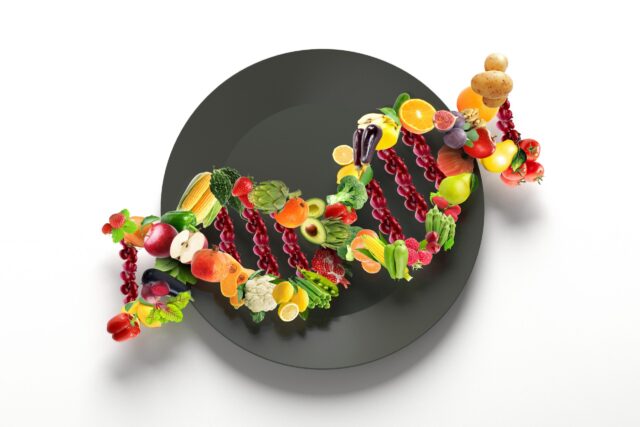
Dr. El-Sohemy: I’m Dr. El-Sohemy, and I’m So, we’re starting to look at the gene that codes for a key dopamine receptor, which we believe may influence mood responses to a range of meals. These investigations are currently underway, and findings should be available within the next several months.
Berardi: This is fantastic information, and I’m sure we’re just scratching the surface. Any guesses as to what additional areas researchers will investigate in the near future and what they will discover?
Dr. El-Sohemy: I’m Dr. El-Sohemy, and I’m In terms of how foods interact with genes to influence health, fitness, and performance, I believe there is still a lot we don’t know. In reality, we’re just now starting to comprehend the human genome’s intricacy.
We used to believe that any two people were 99.9% same, but it seems that we are far more dissimilar. As our knowledge of the human genome advances, the kinds of questions we ask about nutrition evolve, as does the way we construct our research.
In terms of other areas of nutrition study, I believe we’ll start seeing some really fascinating work using nanoscience. This will need modifications to the way nutrients and dietary bioactives are delivered.
Berardi: What exactly are we discussing? What exactly is nanoscience, and how does it affect nutrition delivery?
Dr. El-Sohemy: Nanoscience is the study of materials at a very tiny size (1 nanometer is one-millionth of a millimeter).
You may enhance the surface area of a particle by chopping it up into many smaller bits without altering the actual quantity. Chemical and biological processes may take place more easily with a greater surface area.
The total efficacy will vary dramatically depending on the particle size. Because we can utilize supplements more effectively, we may be able to use considerably lower amounts of supplements.
Berardi: And where does your research team plan to go?
Dr. El-Sohemy: I’m Dr. El-Sohemy, and I’m We’re working on a variety of studies to figure out what genetic variables impact caffeine intake habits, as well as how genetic factors affect caffeine’s biological effects. We’re also looking for genes that may explain particular food and taste preferences and aversions.
In addition, my research group is searching for genetic variants that predict vitamin and other critical nutrient response. We have some interesting early results that we will discuss at the Experimental Biology conference in San Diego in April 2008.
Berardi: Thank you very much, Dr. El-Sohemy. Please keep us up to date on your newest findings.
Better eating, moving, and living
The realm of health and fitness may be perplexing at times. It doesn’t have to be that way, however.
It will teach you the optimal diet, exercise, and lifestyle methods that are specific to you.
Nowadays, it has become very common for people to be concerned about their health, whether it is physical, mental or the way they look. Due to various factors, people are very concerned about their health and there are various changes that are being made to their lifestyle. With these changes, the number of diseases that are being diagnosed in the world has also been increasing. Many people have a desire to have a healthy lifestyle and look good, but this is not possible if they do not know what they are doing..

